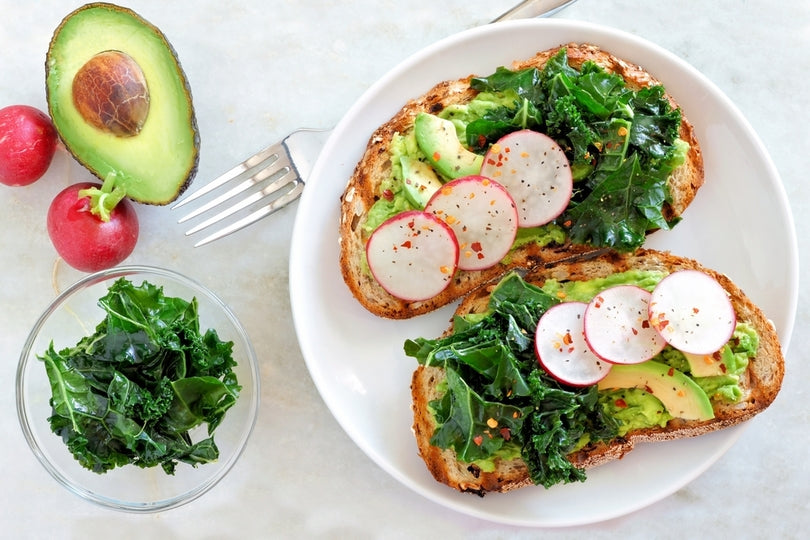Is Cardio Good For Weight Loss?


One question that is on everyone’s lips when beginning their fitness journey: “Is cardio best for weight loss, or is weight training?”
Hearing that cardio burns more calories than weight training in a shorter amount of time is all most people need to jump on the treadmill and disregard the weights rack. When put into simple terms like that, it does seem that beginning to do cardio is definitely good for weight loss. But is it as simple as burning the most calories per workout you do?
Something you may not realise is both styles have their place in your routine — you can use both cardio and lifting weights to lose weight.
Let's take a closer look at both cardio and weight training to see how they impact weight loss.
Cardio vs lifting weights for weight loss
My programs include a mixture of both styles of training because I believe this can help you to become stronger, fitter and more confident. Some people may want to increase their weight training, while others might enjoy cardio training more — we all have our preferences. But how do you know if the type of training you’re doing is best for losing weight?
To help you understand which training style wins in the battle of cardio vs weight training for weight loss, I’m going to explain both styles in more detail. Stick with me, it’s getting technical in here!
Is cardio good for weight loss?
Generally speaking, our bodies need to burn more calories (our energy output) than we eat (energy input) in order to lose weight.
Cardio is just one form of exercise that can help to contribute to our ‘energy output’. There are lots of types of cardio, such as walking, jogging and sprinting. Depending on what your fitness goals are, some types of cardio may be better suited to this than others. For example, if you want to focus on fat and weight loss, then Low-Intensity Steady State (LISS) cardio is a good choice.
This is because walking burns the most fat per calorie when compared to jogging and sprinting. Maintaining a continuous, steady effort helps to raise your heart rate and improves your body’s ability to use oxygen properly.
To put it simply, fat needs oxygen in order to be metabolised (or broken down) for energy. The lower the intensity of the exercise, the more oxygen is available to be used by the body to break down fat. When you are jogging or sprinting, less oxygen is available. Your body can’t easily use fat for energy with less oxygen available, so it uses other energy sources, such as carbohydrates, for energy.
Is LISS or HIIT better for fat loss?
Now I want to take it a step further and talk about high-intensity interval training (HIIT). This can be a great way to boost your body’s fat-burning ability. Not everyone has time to go for an hour-long walk multiple times a week, which is optimal for weight loss. That’s where HIIT cardio can be helpful.
Performing a shorter HIIT session can actually burn more fat than going for an hour-long walk. How, you ask? HIIT produces an afterburn effect, known as Excess Post-exercise Oxygen Consumption (or EPOC, for short). That means you continue to burn fat, even after you’ve finished your workout.
HIIT workouts get your heart rate up quickly and burn more fat in less time than other workouts because of the high intensity. For example, a HIIT workout can involve sprinting as fast as you can for 30 seconds, followed by a 30-second rest, and repeating this for 10-15 minutes.
Keep in mind, though, that cardio is great for increasing fitness levels and building stamina, no matter what the intensity.
Weight training for fat loss
As a personal trainer, I’m asked a lot of fitness questions but one I get a lot is, “Does lifting weights burn fat?”. There is a lot of confusion whether cardio or weight training is better for weight loss.
Lots of women are scared of lifting weights because they are scared it will make them appear bulky. This is not true and is honestly one fitness myth I wish would go away! Please don’t be scared to include weights to lose weight or to improve your strength.
Although doing steady state cardio (walking or running at the same pace) may burn more calories per minute, resistance training will continue to burn calories even after you have completed your workout. Yep, that’s right. Even if you lie on the couch after your workout, your body is still working and burning off calories. You can be burning fat while you sleep! This is similar to the afterburn effect mentioned above.
Another benefit of resistance training is you can lift weight to lose fat, compared to cardio where you can lose a variety of different body masses. Although losing muscle mass will mean your weight on the scale is lower, it may not fit with your personal goals. This is because ‘tone’ comes from muscle definition and shape, and resistance training helps to protect, shape and maintain those muscles.
Choosing between cardio and lifting weights
As you can see, both weight training and cardio have their advantages. So, my answer to ‘what is best for weight loss: cardio or lifting weights’, is… both!
If weight loss is your goal, then cardio can be a great stepping stone for increasing your fitness levels and burning calories quickly. However, in order to achieve a toned, sculpted look, adding resistance training to your routine is important.
Balancing weight training and cardio
In order to lose weight successfully, I recommend implementing a regular training program. My programs combine both cardio and resistance training to help you achieve weight loss and strengthen your muscles. Together, this helps to create definition and muscle tone. My programs are designed to offer variety and progression too — which means you are less likely to get bored with your exercise routine. When you’re putting in the effort, you want to continue achieving results without getting bored of your workouts.
Remember ladies, exercise is just one piece of the puzzle when it comes to fat loss. Eating habits and lifestyle factors can also contribute to your weight-loss goals. Everyone is different, so find something that works for you.
Best of luck!
* Disclaimer: This blog post is not intended to replace the advice of a medical professional. The above information should not be used to diagnose, treat, or prevent any disease or medical condition. Please consult your doctor before making any changes to your diet, sleep methods, daily activity, or fitness routine. Sweat assumes no responsibility for any personal injury or damage sustained by any recommendations, opinions, or advice given in this article.




<#= c.user.username #><#= moment(c.created_at * 1000).fromNow() #>
<#= c.html_body #> <# if (c.images) { #>
<# } #>